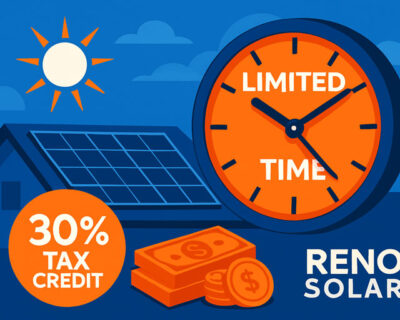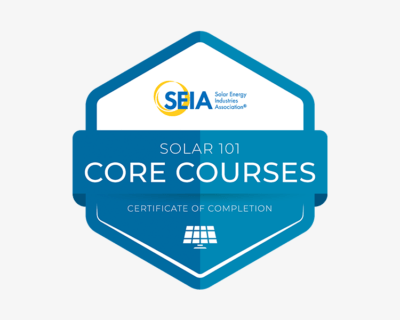
Solar Panel Pros and Cons
Solar power is a technology that has been around for nearly 100 years and is now becoming increasingly popular as an energy resource. Solar panels harness the sun’s rays to generate electricity, and the panels may be used as stand-alone systems or as part of a larger, more complex solar array.
Solar power provides many advantages to homeowners and businesses: Solar panels produce clean energy and offset consumption from traditional fuels like coal and natural gas; Solar panels save money by lowering utility bills; Solar panel installations allow homeowners to tap into external financing options.
Although it’s a fast process, a solar installation it’s a complex and dangerous DIY project.
Learn More
On the other hand, Solar Panels will not produce as much power in states where the sunlight is not so abundant like Massachusetts or Vermont for example.
Solar installation costs vary depending on your location and it may not be available for off-grid projects depending on your state regulations and project viability. Solar panels require little to no maintenance since there are no moving parts, but installation and/or removal is highly recommended to be performed by a certified professional. (source – www.eia.gov)
FREQUENTLY ASKED QUESTIONS
What are the different types of solar panels?
There are currently two major technologies or types of solar panels: silicon solar panels (broken down into monocrystalline and polycrystalline based on how the silicon is processed) and thin-film. Here at Reno Solar We only use the best panels in the industry. We take pride in the longevity of our systems and only want the best. We only use Tier 1 black on black panels to keep a sleek and low profile look on your roof.
How long do solar panels last?
Solar panels and their components are designed to last at least 25-30 years, though there are several accounts of them lasting much longer. According to NREL, a solar panel will still generate 90% of its original energy output on the 20th year anniversary! Here at Reno Solar you get 25 years Equipment warranty, Plus a 10 year workmanship warranty. Its solid, no risk and reliable investment in your Home.
What kind of maintenance do solar panels need?
Solar panels demands very little to no maintenance in their lifetimes. The glass, silicon and metal components are designed to last through year after year exposed to scorching-hot sun, pouring rain, howling wind and falling hail, snow, debris, etc. The system does not carry any moving parts, and the panels are sealed and designed to be weather-tight. Nearly all modern panels come with a warranty that protects you against material defects and guarantees energy production for 25 years.
That being said, the occasional check-up or light sweeping of debris definitely won’t hurt. In winter, snow will usually slide right off your panels’ smooth surface.
How do solar panels help you save money?
When you install install solar panels on your roof you are using the electricity produced to offset your demands. With the panels hooked up behind the electric meter, NV Energy is responsible for tracking the amount of solar energy produced and the amount used by your home when the sun isn’t shining.
Here in Nevada, the home’s solar electricity is credited to the homeowner’s utility account on a 1-to-1 basis. This kind of billing is called net metering, and it means the homeowner saves the full price for every kilowatt-hour of solar energy they use solar to offset.
Over the typical 25-year lifespan of a solar installation, these savings can add up to tens of thousands of dollars more than the initial cost of the system, essentially making the purchase of solar panels like an investment, and the energy bill savings like dividends.
Should I wait to install solar until it gets cheaper?
We’ve seen some variation on this questions for at least 12 years now, and the answer is almost always “NO.”
There are two reasons for this answer: solar incentives are expiring, and saving money now is better than saving money later.
First the incentives. The federal solar tax credit is scheduled to begin “phasing out” as of January 1st, 2022. By January 1st, 2023, there won’t be a tax credit for home solar any more. For the average homeowner, this tax credit currently represents sometimes $6,000 or more in savings on home solar. We’d say it’s not a good idea to leave $6,000 on the table.
The state incentives might also be disappearing. Unless you’re specifically waiting for a new incentive program to begin, the time to install solar panels is now.
Next, the “time value of money.” Solar panels save money now. We know this. And the savings they generate are currently estimated to continue for 20-25 years, depending on how (and how much) you pay. Taking a loan or paying cash now gets you saving money today, but waiting for a year or two reduces the value of those future savings by at least the amount of inflation, not including what else you could be doing with the money now.
Again, with incentives and net metering either disappearing or undergoing changes all over, it pays to evaluate your potential savings with solar now rather than wait to act when the deal might not be as good.






